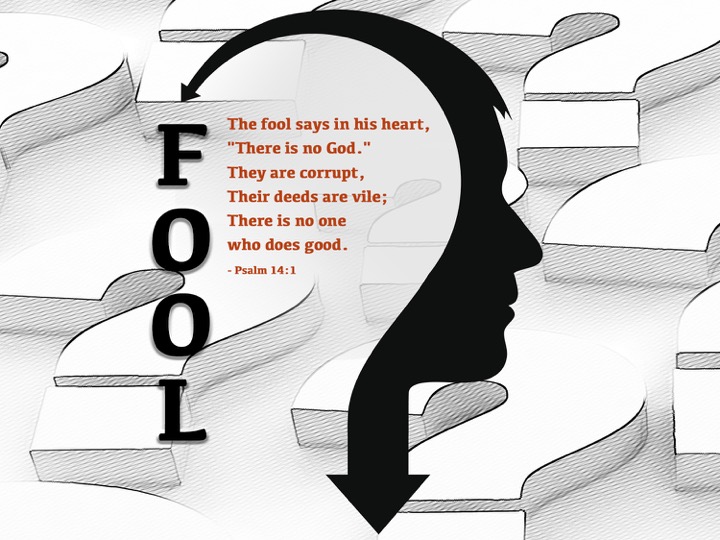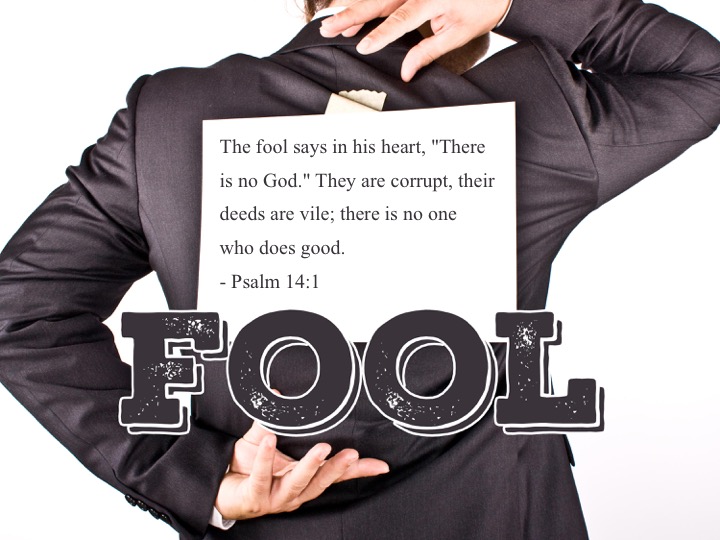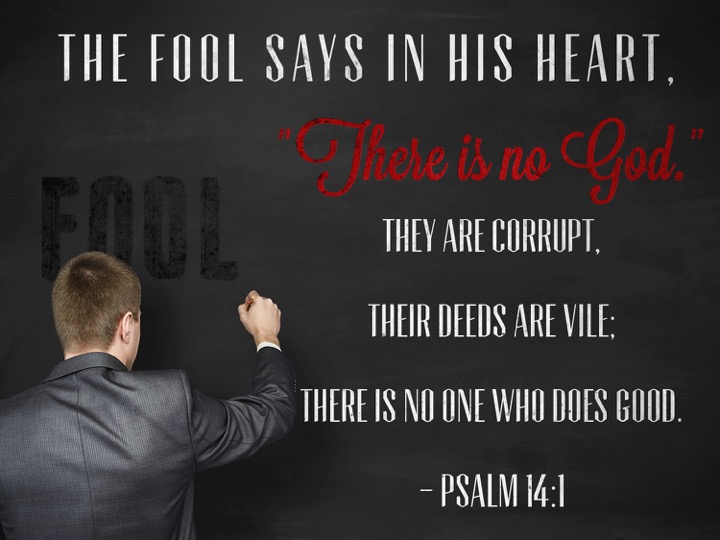-
The Ways Of A Fool -- 1 Samuel 31 Series
Contributed by James D. Thornber on Mar 2, 2014 (message contributor)
Summary: We look at some of the ways Saul played the fool so we can learn how NOT to go the direction Saul went.
The Ways of a Fool
Like most of you, I have spent time walking in the cemetery. I like to look at the gravestones and their dates. I like to imagine what these people were like and how they lived a hundred or more years ago. What did they do for a living? Where in town did they live? Where did they go to church? Does anyone in Independence remember who they were or claim them as their ancestors? Then I go a bit further. I wonder: Are there people alive today who are serving the Lord because this person, a hundred years ago or more, led someone to the Lord who led someone else to the Lord who led them to the Lord? Do these people have spiritual grandchildren who can thank them for their influence, or did they live only for themselves so that when their children died, if they had any, the memory of their time on earth vanished with their coffin?
This, of course, leads me to ask the same questions about myself. In a hundred years, will anyone recognize my name? Will there be a great-great grandchild who will claim me as their Papa and say, “Because of that man’s faith I now have a relationship with Jesus”? When my life is over, will there be more people who are glad they knew me than there are people who are glad I am no longer a thorn in their flesh?
The good news is that my legacy, what people say about me and what they remember me for, is completely up to me. If I want to be remembered as a kind and patient man, a man who loved people and listened to their concerns, who was more interested in having money to give away than in accumulating nice cars, who relished teaching the Word and watching people grow in God and who wanted to see the Kingdom of God grow and took time to invest in that Kingdom, then that is completely up to me. How I want to be remembered is my choice.
And it is your choice, also. How you are remembered is completely up to you. Now, I’ve asked you this before, but if you could write your own epitaph (Latin: epi, over and taphos, tomb); if you were given the choice of writing what you’d like written on your tombstone, what would you want it to say? How would you want to be remembered? Some people take this idea seriously, and some people do not.
Winston Churchill knew he would not always be remembered well, for he would often clash with people because of his sharp tongue and caustic wit. When Churchill died in January 1965, he conceded that he might not be so easy to get along with it—especially for all eternity. Thinking a bit too highly of himself, Churchill has this written on his tombstone: “I am ready to meet my Maker. Whether my Maker is prepared for the great ordeal of meeting me is another matter.”
I’ve shared this with you before, but why one of my favorites is what Benjamin Franklin wanted written on his tomb. Confiding in his diary, a young Franklin chose these words to be remembered by.
The Body of B. Franklin, Printer; like the Cover of an old Book, Its Contents torn out, And stript of its Lettering and Gilding, Lies here, Food for Worms.
But the Work shall not be wholly lost; For it will, as he believ’d, appear once more, In a new & more perfect Edition, Corrected and amended By the Author.
Unfortunately, when it finally came time to write his epitaph, Franklin became quite modest. His grave in Philadelphia simply reads, “Benjamin and Deborah Franklin.” I like his first choice better!
Now, what do you want yours to read? And you know that if you are sitting here this morning you still have time to amend it. Each of us can look at our life and say, “This is how I used to be and many people will remember it. But this is how I’d like to be remembered, and this is what I am going to do about it.”
Death is the great equalizer. All of us face it and talking about it can be uncomfortable. But this morning I want to make sure that when it does catch you it finds you in good standing with God, with a clear conscience and a peaceful spirit so that you can look forward to hearing God say, “Well done, good and faithful servant” (Matt. 25:23). In order to do this, we’re going to read about the death of Saul. READ 1 Samuel 31.
There is a sense in which King Saul did write his own epitaph and it is far from humorous. In 1 Sam. 26:21 there is a statement given by Saul that summarizes his life. After David spares Saul’s life for the second time, Saul says to David, “I have sinned. Come back home, my son, and I will no longer try to harm you, for you valued my life today. I have been a fool and very, very wrong.” The Message says, “I’ve acted the fool—a moral dunce, a real clown.” Saul began his Kingship with all kind of advantages. He was physically impressive, he had the charisma to lead people and he had the support of God but he played the fool. He became so self-centered, so egotistical, so jealous, so disobedient to God that he ended up frittering it all away. Prov. 16:25 describes Saul well when it says, “Before every person lies a road that seems to be right, but at the end of that road death and destruction wait” (The Voice). It is my sincere hope it doesn’t describe anyone here! And although Saul looked good to the world, deep in his soul he knew that God observed his heart and he said of himself, “I have been a fool.” I hope that is something that no one I know has written on their tombstone. Having said that, let’s look at some of the ways Saul played the fool so we can learn how NOT to go the direction Saul went.

 Sermon Central
Sermon Central



